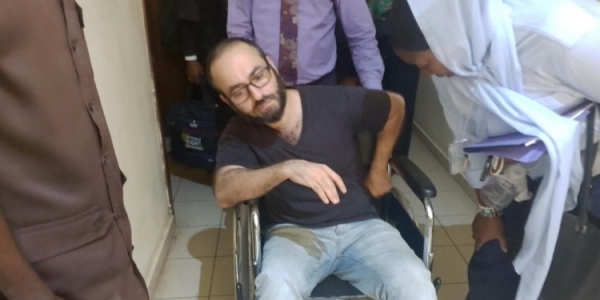A senior official of the Ministry of Foreign Affairs has said the United States is pressing for consular access to a detained Binance executive, Tigran Gambaryan, currently held at the Kuje custodial centre in Abuja.
Gambaryan, a US citizen and Binance’s financial crimes compliance chief, was arrested in February 2024 along with another executive, Anjarwalla, upon their arrival in Nigeria.
Their detention followed an investigation that allegedly tied Binance to money laundering and terrorism financing.
Justice Emeka Nwite of a Federal High Court in Abuja fixed October 9 to rule on the fresh bail application brought before the court by Gambaryan’s lawyers.
Concerns about his well-being have been raised, with Binance Chief Executive Officer, Richard Teng, calling for his release due to claims of deteriorating health and inadequate medical care.
Gambaryan’s family has also alleged that he is being denied access to a wheelchair.
The MFA source, who requested anonymity because he was not authorised to speak on the matter, told Sunday PUNCH that the US was particularly focused on Gambaryan’s health.
“I only know that the US is concerned about the man’s health, especially now that his family has gone public in the US with the matter.
“I would not say they are lobbying, they are just concerned that they are not being granted access to the man (being a US citizen). Remember that Binance had their issue in the US as well,” the source explained.
Reacting, a retired Nigerian Ambassador to Mexico and Singapore, Ogbole Amedu-Ode, said the US request for consular access to the detained Binance executive was justifiable but should not interfere with Nigeria’s legal process.
“The US is right in requesting consular access to the detained Binance executive,” he said. “Nigeria does not interfere when Nigerians are arrested for criminal activities in the US. We allow the US legal system to proceed without interference.”
A retired Consul to Cameroon and Delegate to the World Expo and Economic Development Centre in Paris, Ambassador Rasheed Akinkuolie, emphasised the critical role of embassies in ensuring the protection of their citizens detained abroad.
He stated, “It is the right and function of every embassy to have access to detained nationals in a foreign country, regardless of the offence—be it murder or any other serious crime.
“The embassy needs to be informed to ensure that the individual is not mistreated or unjustly punished.”
Akinkuolie explained that once embassies are involved, they investigate the charges and provide legal support if necessary.
Akinkuolie stressed that embassy involvement often results in better treatment for detainees, regardless of the gravity of their offense. “When the embassy is involved, the host country becomes more cautious in their handling of the detainee.”
[Punch]


